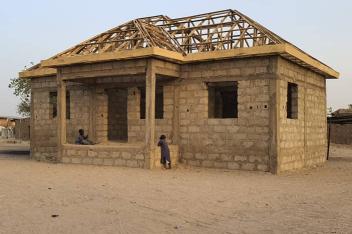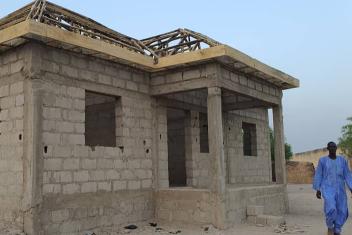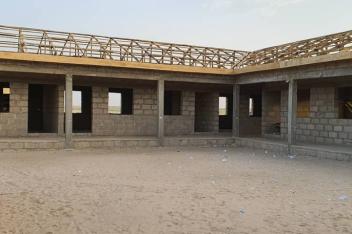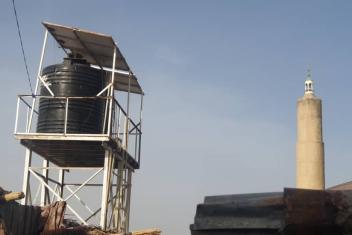How governance committees influence community development
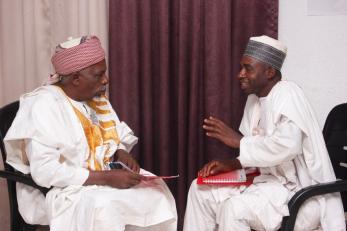
Dikwa is a remote garrison area in eastern Borno State in Northeast of Nigeria, that is mostly dependent on humanitarian assistance. Road access is limited, and there is no consistent presence of either local government officials or permanent traditional leadership structures. With a population of 113,902, including 75,470 Internally Displaced Persons (IDPs), existing infrastructure and services are overburdened, intercommunal tensions run high, and local authorities remain out of reach to manage these challenges.
Addressing this need, Mercy Corps’ North East Conflict Management and Stabilization (NE-CMS) program and local partner Herwa Community Development Initiative established community-based structures called Good Governance Committees (GGC) in three communities in Dikwa, which are Chingo Zarma, Gajibo, and Kanumburi.
We equipped them with advocacy skills and techniques, which they used to conduct community consultations to map and prioritize critical needs and develop plans aimed at influencing key decision-makers on their communities’ development.
The Good Governance Committees identified faulty water points, inadequate healthcare facilities, and overcrowded classrooms as their priority issues, in all three communities. In August 2019, they began lobbying the relevant stakeholders at the local government area (LGA) and state levels for support in addressing these needs.
Their efforts proved successful when by November 2019, the Local Government authority of Dikwa kicked-off construction of two clinics in Kanumburi and Kila-garu Chingo Zarma communities and rehabilitated a water borehole in Gajibo IDP camp. In Chingo Zarma community, the Local Government Council of Dikwa commenced construction of six classrooms which were then completed by the former Permanent Secretary Federal Ministry of Finance.
These GGCs have changed the way the communities are making demands of their leaders, shifting from individual demands such as school fees, hospital fees, home repairs, or cash handouts; to more collective infrastructure-related demands like boreholes, classrooms, or drainage channels through lobbying, joint solutions, and media engagement on behalf of the broader community. This shift not only empowers communities but also produces tangible benefits, as key decision-makers are increasingly responding to their communities’ needs.
According to Mohammed Zakariya, Honorable Member of the State House of Assembly representing Dikwa LGA, “This is the first time since I was voted as member in 1990 to date, that any groups or individuals representing all 12 wards of Dikwa have written a single letter to my office on behalf of the collective community concerns”.
As a result of this experience, the GGC members of Dikwa town are more willing and confident to advocate for their communities’ needs with continuous follow-up to appropriate authorities in order to enhance the sustainability of their existing and future efforts. Mercy Corps Nigeria and Herwa continue to provide support by strengthening their skills and commitment towards effective advocacy through ongoing mentorship.
The NE-CMS program, funded by the Department for International Development (DFID), aims to build social cohesion, promote social inclusion of youth and women, bolster the psycho-social wellbeing of communities, and strengthen participatory governance systems at the local level. The program operates in five LGAs in Borno State, including Maiduguri Metropolitan Council (MMC), Jere, Damboa, Dikwa and Gwoza.
